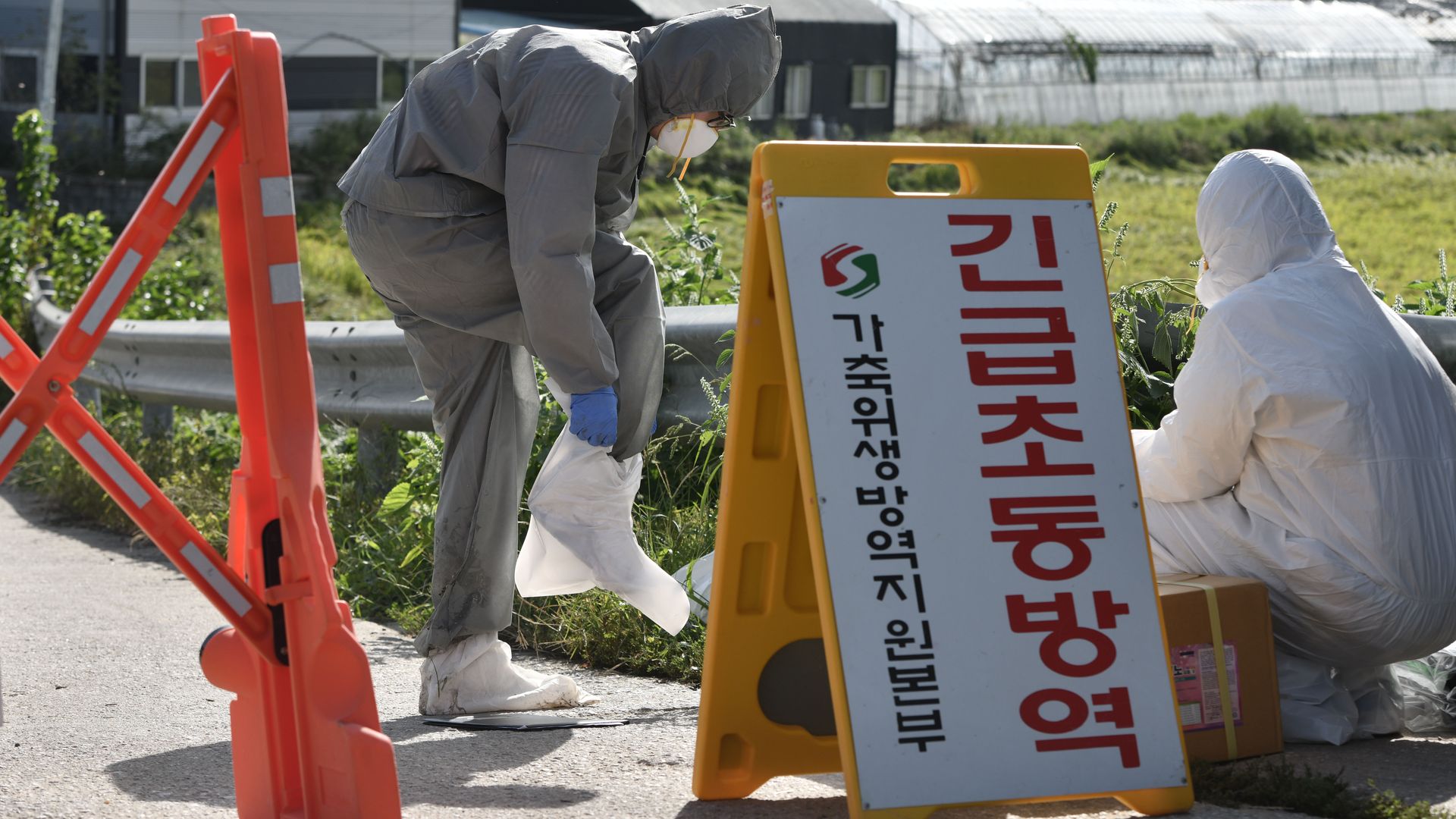Global pork prices soar as swine fever infects herds in eastern Asia
Add Axios as your preferred source to
see more of our stories on Google.

South Korean quarantine officials block people from entering an infected area. Photo: Jung Yeon-je/AFP/Getty Images
African swine fever, a deadly pig disease, is killing hundreds of millions of hogs in eastern Asian countries, causing a global surge in pork and bacon prices, according to Bloomberg.
Why it matters: African swine fever is not known to infect or harm humans, but it can kill most pigs in a week and has the potential to disrupt pork markets and threaten food-insecure countries.
By the numbers: Prices for swine carcasses have soared 31% and piglets 56% in the past year in Europe, according to Bloomberg. And analysts believe prices will remain high as China, Vietnam and other countries celebrate the Lunar New Year on Jan. 25, a peak time for pork consumption.
China: The fever has had a greater impact on China than on any other country, and the U.S. Department of Agriculture now considers it an epidemic.
- The USDA estimates that Chinese swine herds will decrease to 275 million pigs by the end of 2020, down almost 40% since 2018.
North Korea: North Korea reported only a single outbreak that killed 22 pigs in May, according to Bloomberg. But South Korea has found dead feral pigs that have tested positive for the disease in or near the South Korean-North Korean border.
- South Korean officials believe the fever has spread to almost all areas of North Korea as it faces reduced crop production due to below-average rains and a lack of irrigation infrastructure, according to the United Nation's Food and Agriculture Organization.
- The FAO estimates that 40% of North Korea's population is food insecure and in urgent need of food assistance. A former North Korean official who fled the country told Bloomberg that pork accounts for about 80% of North Korea’s protein consumption.
South Korea: South Korea announced on Sept. 17 its first case of the disease in a city near its border with North Korea. Since the first case, South Korean soldiers stationed near the border were ordered to capture or shoot wild boars crossing the border to prevent the disease from spreading.
- As of Oct. 7, at least 145,000 pigs had been culled since the first case was announced, according to WSJ. South Korea’s Ministry of Unification said Pyongyang has ignored offers from Seoul to help fight the disease.
- Analysts believe that South Korean pork prices will fall as farmers preemptively kill unaffected livestock to stop the spread.
The big picture: U.S. farmers have an opportunity to cash in on the outbreak in China, but only if the two countries can reach a trade agreement. President Trump has claimed that China has promised to buy $40 billion–$50 billion worth of U.S. agricultural goods, but Beijing has not endorsed the transaction.
- In September, China bought 3,375 tonnes of pork from U.S. farmers.
Go deeper: Trump's promises on "phase 1" trade deal with China fall flat
